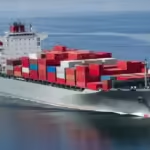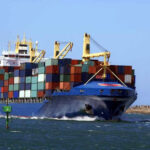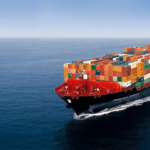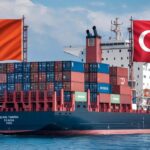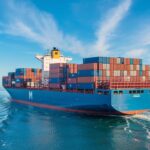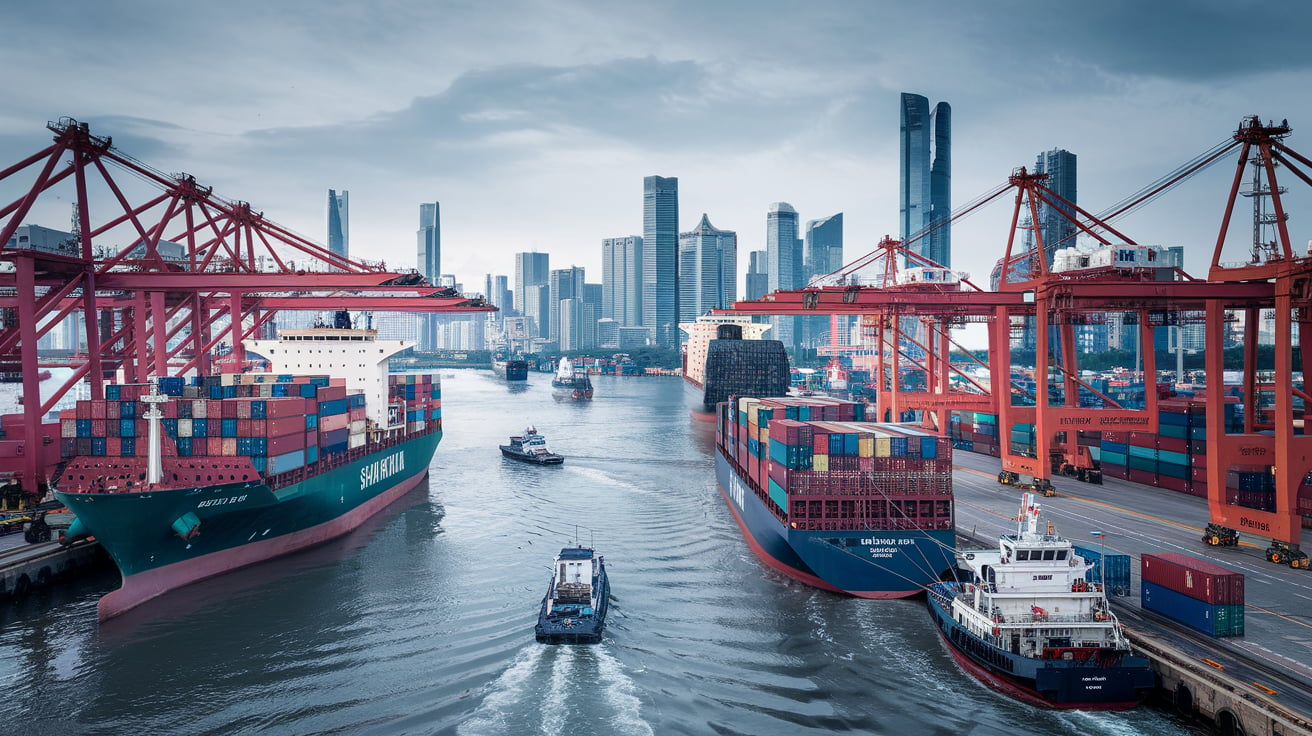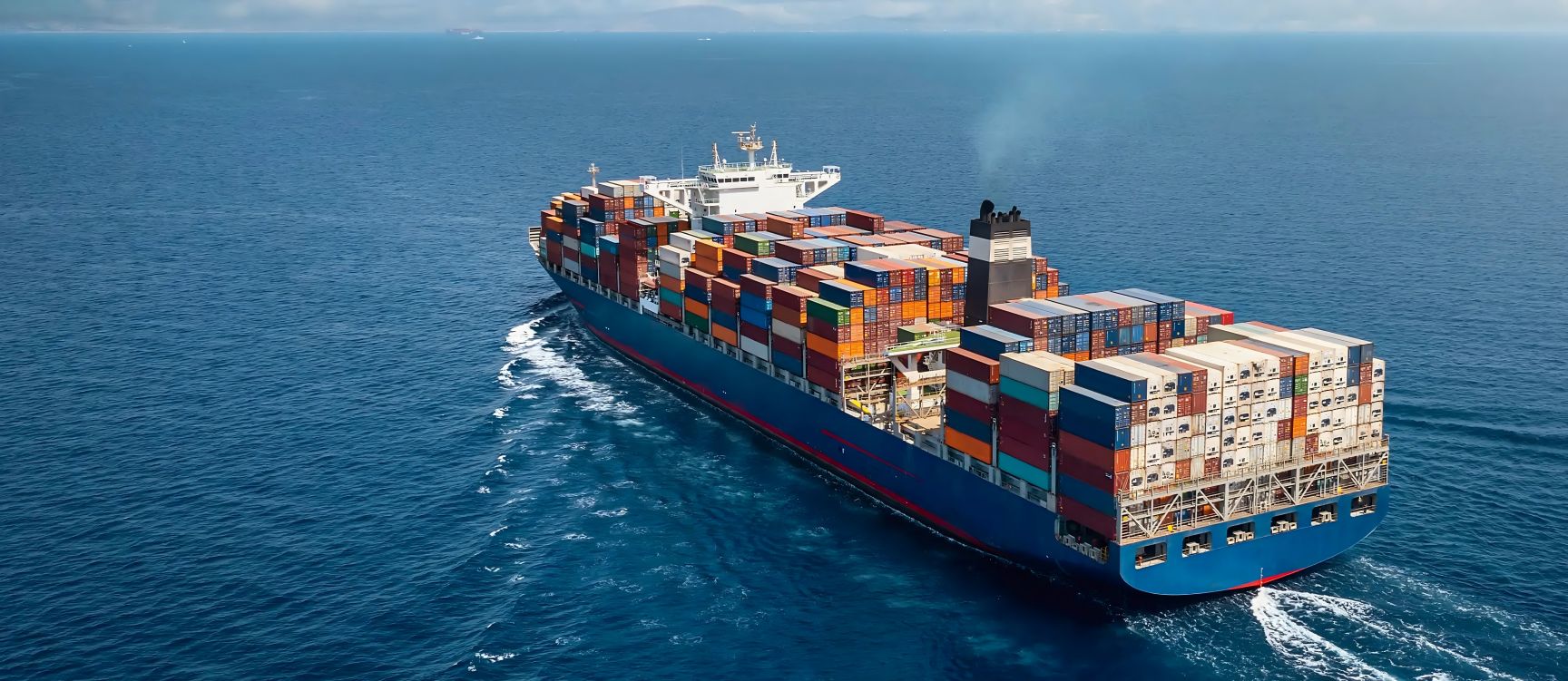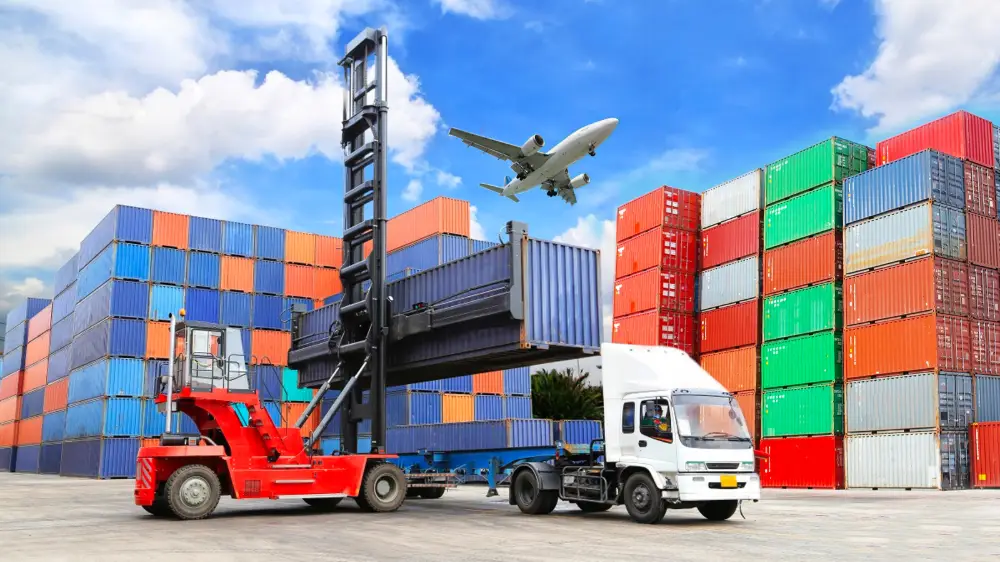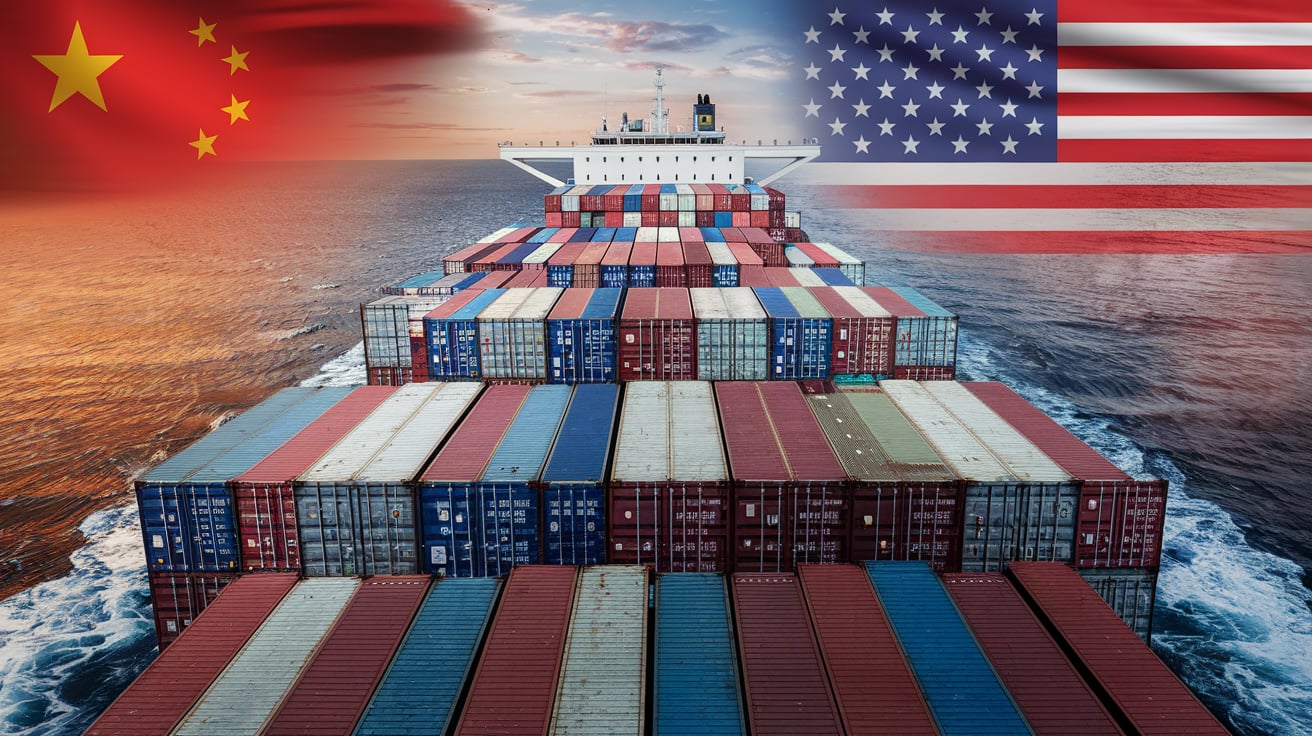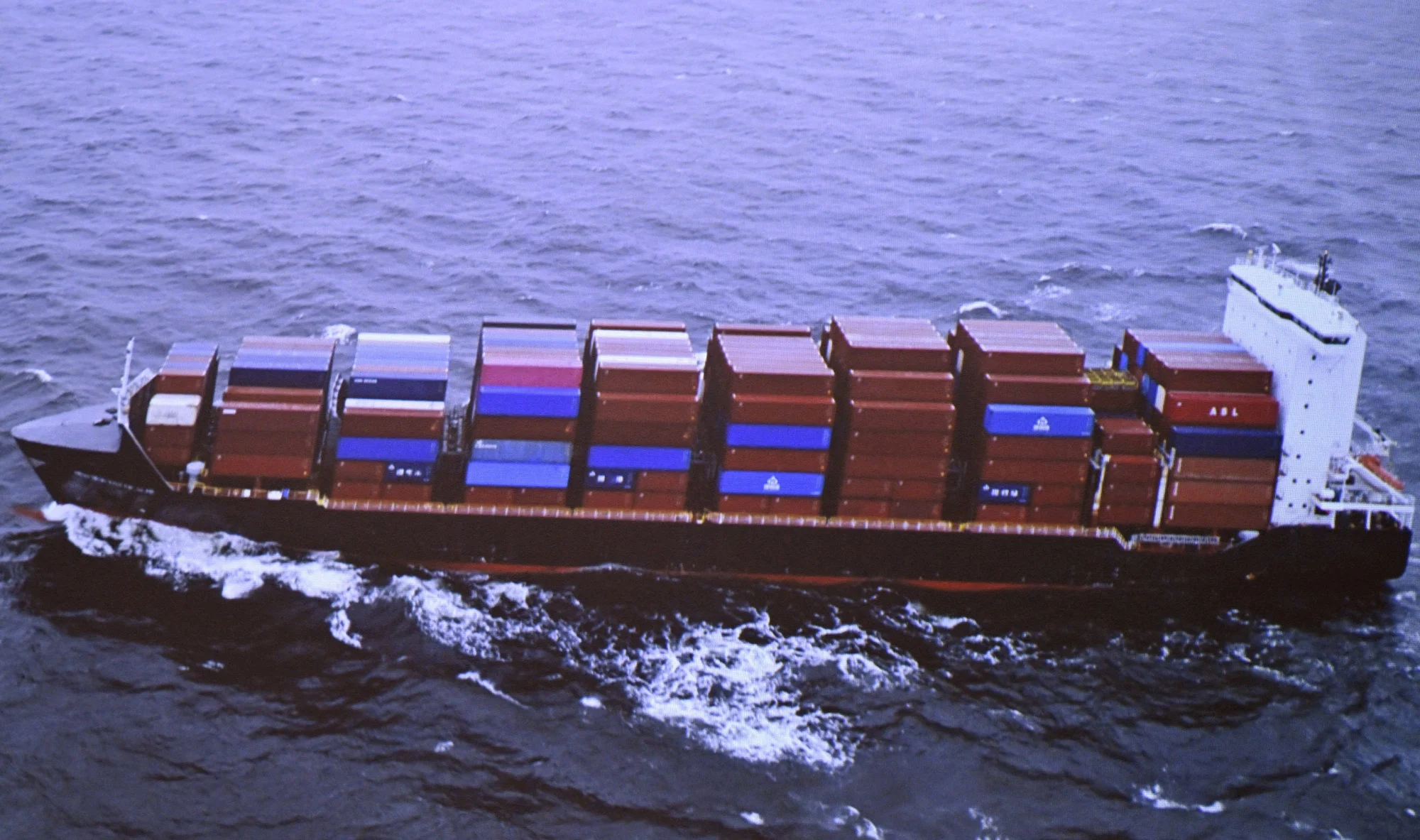In the ever-expanding realm of global trade, sea freight has emerged as a cornerstone for businesses looking to import goods efficiently and cost-effectively. For companies engaged in importing from China to Slovakia, understanding the nuances of sea freight can unlock significant advantages, from reduced shipping costs to the ability to transport large volumes of goods. This article delves into the myriad benefits of sea freight, exploring its impact on global commerce, the logistics involved in shipping, and the factors that influence costs and transit times. Join us as we navigate the complexities of sea freight logistics, offering insights that are essential for optimizing your shipping strategy and enhancing your operational efficiency.
Related Article : Shipping From China To Slovakia
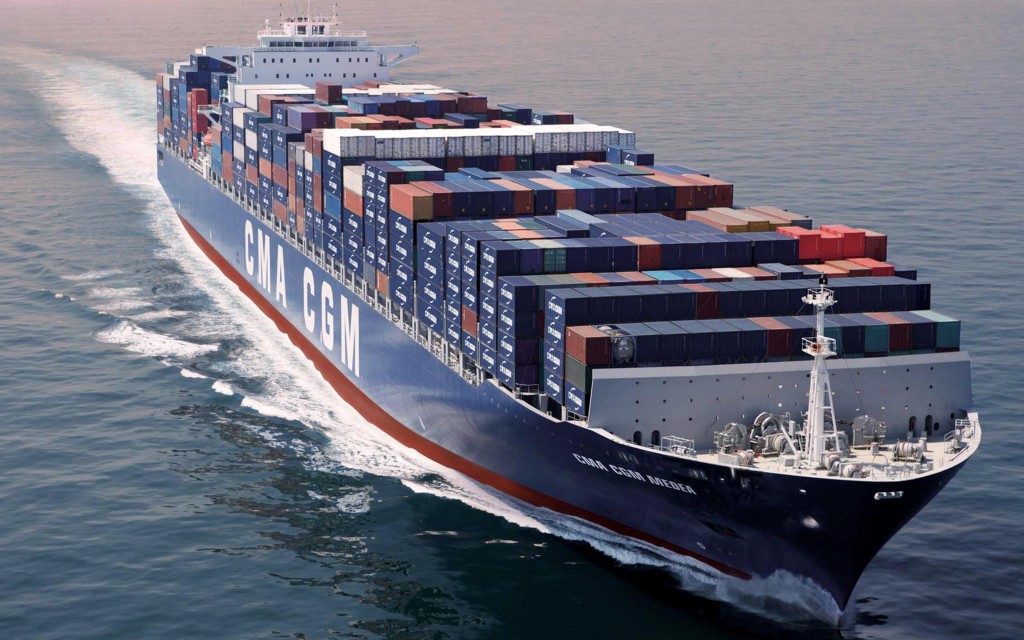
Understanding Sea Freight: A Comprehensive Overview
Sea freight refers to the transportation of goods via maritime vessels over large distances. This method of shipping is particularly popular for international trade due to its ability to handle significant volumes of cargo efficiently. In essence, sea freight encompasses the movement of containerized cargo, bulk goods, and breakbulk shipments across oceans and seas.
Typically, goods are loaded into containers at the port of origin, where they are then transported on large cargo vessels. This process includes several key steps: packing, loading, navigation, and unloading. The significant aspect of sea freight is its capacity; a single vessel can carry thousands of tons of products, making it an economically viable option for businesses looking to transport large quantities.
The Importance of Sea Freight in Global Trade
The role of sea freight in global trade cannot be overstated. It accounts for approximately 90% of the world’s trade by volume. This dominance can be attributed to several factors:
-
Cost-effectiveness: Compared to air freight, sea freight typically offers significantly lower shipping rates. This is particularly beneficial for large shipments where the cost per unit decreases as the quantity increases. For businesses importing goods from China to Slovakia, opting for sea freight can lead to significant savings on logistics costs.
-
Capacity: Modern cargo ships have immense carrying capabilities. A standard container vessel can transport thousands of containers, which is invaluable for businesses managing high-volume imports. For instance, a 20-foot container can hold a considerable amount of goods, making it suitable for various products ranging from electronics to textiles.
-
Environmental Impact: While all modes of transport have an environmental footprint, sea freight is generally more fuel-efficient than air transport. According to the International Maritime Organization (IMO), shipping emissions per ton-kilometer are significantly lower compared to aviation. For companies with sustainability goals, choosing sea freight aligns with eco-friendly practices.
-
Variety of Goods: Sea freight can accommodate a wide array of products, including perishable goods, hazardous materials, and bulk commodities. This flexibility is crucial for businesses that require reliable shipping methods for diverse products.
-
Global Reach: With major ports interconnected globally, sea freight provides access to nearly every international market. The vast network of shipping lanes facilitates trade between continents, making it an ideal choice for businesses engaged in global commerce.
-
Predictability and Reliability: Although delays can occur due to weather or port congestion, sea freight generally offers predictable transit times for scheduled sailings. Businesses can plan their inventory levels and supply chain activities more effectively, minimizing disruptions.
For companies looking to import goods from China to Slovakia, understanding the benefits of sea freight is essential for optimizing logistics strategies. Choosing the right freight forwarder, such as Dantful International Logistics, can further enhance this process by providing tailored solutions that meet specific shipping needs.
Advantages of Sea Freight from China to Slovakia
Cost-Effective
One of the most compelling advantages of sea freight is its cost-effectiveness. When shipping goods internationally, especially in bulk, sea freight typically presents significantly lower per-unit costs compared to alternatives such as air freight. For businesses importing from China to Slovakia, the savings can be substantial. The economies of scale associated with shipping larger volumes mean that as the quantity of goods increases, the cost per unit decreases, making it an attractive option for businesses aiming to minimize logistics expenses.
Accommodates Large Shipments
Sea freight is particularly advantageous for businesses that require the transportation of large quantities of goods. Modern container vessels have the capacity to carry thousands of containers, making it feasible to ship considerable volumes all at once. This is especially beneficial for bulk commodities and manufactured goods. For example, a single shipment of clothing, electronics, or machinery can be consolidated into a few containers, streamlining the import process and reducing the frequency of shipments necessary.
Versatile Container Options
Another benefit of sea freight is the availability of versatile container options that cater to various types of goods. Freight forwarders offer numerous container types, including standard containers, refrigerated containers, and open-top containers, permitting the transportation of diverse products. Companies can select containers based on their specific needs, accommodating everything from perishable items to oversized machinery. This flexibility ensures that businesses receive tailored solutions to meet their shipping requirements.
Reliable Transit Times
Although sea freight may have longer transit times compared to air freight, it often provides reliable schedules. Shipping companies typically operate on fixed schedules with regular departures and arrivals, allowing businesses to plan effectively around their supply chain needs. Moreover, opting for a reliable freight forwarder, such as Dantful International Logistics, can enhance the predictability of transit times, as they manage logistics and communicate updates throughout the shipping process.
Environmentally Friendly
Sustainability is becoming an increasingly important consideration in global trade, and sea freight is generally recognized as the more environmentally friendly option compared to other modes of transport. According to the International Maritime Organization, shipping produces significantly lower CO2 emissions per ton-mile compared to air transport. For businesses with a commitment to reducing their carbon footprint, choosing sea freight aligns with their environmental goals while still offering efficient transportation solutions.
Reduced Risk of Damage
The risk of damage to goods during transportation is a critical concern for importers. Sea freight tends to have a lower incidence of damage compared to air freight due to the more controlled environment in which goods are stored during transit. Containers are securely packed and sealed, minimizing exposure to external factors. Additionally, the slower movement of vessels reduces the chances of jostling and impact-related damages. This reliability ensures that products arrive in optimal condition, enhancing customer satisfaction and reducing potential losses for businesses.
Read More:
- Shipping From China To Netherlands
- Shipping From China To Spain
- Shipping From China To Germany
- Shipping From China To France
- Shipping From China to Italy
- Shipping From China To Poland
- Shipping From China to United Kingdom
The Process of Shipping via Sea Freight
Step-by-Step Guide to Sea Freight Shipping
Shipping via sea freight involves several critical steps to ensure a smooth transaction. Here’s a detailed breakdown of the process:
-
Freight Forwarding Selection: Choose a reputable freight forwarder, like Dantful International Logistics, to manage the logistics of your shipment. They can provide valuable insights and assistance through various shipping options.
-
Cost Estimation: Request a shipping quote based on the type and volume of goods, departure and destination ports, and specific requirements for your shipment.
-
Booking: Once the quote is accepted, confirm the booking with the freight forwarder. This step typically includes providing information about the cargo, including dimensions, weight, and nature of the goods.
-
Documentation Preparation: Gather all necessary documentation, including the bill of lading, commercial invoice, packing list, and any permits needed for customs clearance.
-
Cargo Packing: Ensure that goods are packed correctly in suitable containers. Proper packing reduces the risk of damage during transit and complies with international shipping standards.
-
Loading: The cargo is then transported to the port, where it is loaded onto the vessel. The freight forwarder coordinates this loading process to ensure everything is done efficiently and safely.
-
Shipping: The vessel departs for the destination port, with transit times depending on various factors including the shipping route and potential layovers.
-
Customs Clearance: Upon arrival at the destination port, the goods must clear customs. The freight forwarder assists with customs documentation and compliance, ensuring that all regulations are met.
-
Unloading and Delivery: Once customs clearance is completed, the cargo is unloaded and can either be picked up or delivered to the specified address, depending on the agreed terms.
Choosing the Right Freight Forwarder
Selecting the right freight forwarder is a crucial aspect of successful sea freight shipping. Companies should consider several factors when making this decision:
-
Experience and Reputation: Look for a freight forwarder with a solid track record of successfully managing sea freight shipments. Research customer testimonials and industry reputation.
-
Service Offerings: Ensure the freight forwarder provides a comprehensive range of services, including customs clearance, warehouse services, and insurance services to protect your cargo.
-
Communication: Choose a freight forwarder that maintains open lines of communication. Keeping you informed throughout the shipping process is essential for avoiding delays and addressing issues timely.
-
Global Network: A robust global network of partners and agents is important for efficient shipping. This network facilitates smooth transitions between different logistics stages.
-
Cost Transparency: Look for a freight forwarder that offers clear, transparent pricing with no hidden fees. This helps businesses budget accurately and avoid unexpected costs.
By carefully evaluating these factors and leveraging the expertise of a reliable freight forwarder like Dantful International Logistics, companies can enhance their shipping processes, ensuring successful imports from China to Slovakia.
Sea Freight Costs from China to Slovakia
Understanding the cost structure associated with sea freight is crucial for businesses planning to import goods from China to Slovakia. Various factors influence these costs, which can be categorized into several key components:
Key Components of Sea Freight Costs
-
Freight Charges: This is the most significant portion of the sea freight cost. It typically varies based on the shipping line, route, and the type of service (full container load (FCL) vs. less than container load (LCL)).
-
Port Handling Fees: These charges are incurred for the loading and unloading of containers at the port. Different ports may have varying fee structures, which can impact overall shipping costs.
-
Customs Duties and Taxes: When goods arrive in Slovakia, they may be subject to customs duties and VAT. The applicable rates depend on the type of goods and their declared value.
-
Insurance Costs: While optional, insuring your cargo against damage or loss is advisable. The cost of marine cargo insurance typically ranges from 0.5% to 2% of the declared value of the goods, depending on the coverage terms.
-
Container Rental Fees: If the shipment uses containers, rental fees may apply if the cargo is not returned promptly after unloading. These fees can accumulate quickly, especially for extended transit times.
-
Transportation to/from Ports: Additional costs may arise from transporting goods to the departure port in China and from the arrival port in Slovakia to the final destination. Freight forwarders often offer these services as part of a comprehensive logistics solution.
Estimated Cost Comparison Table
| Cost Component | Estimate (USD) |
|---|---|
| Freight Charges (FCL) | $1,500 – $3,000 (depending on container size) |
| Port Handling Fees | $100 – $300 (per container) |
| Customs Duties & Taxes | Varies (typically 0-20% based on item classification) |
| Insurance Costs | $50 – $200 (varies based on cargo value) |
| Container Rental Fees | $10 – $50 per day |
| Transportation to/from Ports | $200 – $500 (depending on distance) |
| Total Estimated Cost (FCL) | $2,160 – $4,350 (excluding customs duties) |
It is important for importers to engage with a knowledgeable freight forwarder, such as Dantful International Logistics, for accurate cost assessments and competitive shipping rates tailored to their specific needs.
Sea Freight Transit Times from China to Slovakia
Transit times for sea freight shipments can vary significantly based on multiple factors, including the specific ports of departure and arrival, the shipping route taken, and the shipping line’s schedule. Understanding these transit times helps businesses plan their inventory and logistics effectively.
Average Transit Times
-
Direct Shipping: If using a direct shipping route, the average transit time from major Chinese ports (e.g., Shanghai, Shenzhen) to key Slovak ports (e.g., Bratislava) typically ranges from 25 to 40 days. This duration includes loading at the port of origin, the actual sailing time, and unloading at the destination port.
-
Transshipment: If the shipment requires transshipment (i.e., changing ships at an intermediary port), transit times can extend by an additional 5 to 10 days, depending on the efficiency of the transshipment process.
-
Customs Clearance Delays: Upon arrival in Slovakia, customs clearance can introduce further delays, typically ranging from 1 to 3 days, depending on the complexity of the shipment and the efficiency of local customs procedures.
Factors Influencing Transit Times
- Seasonal Demand: Peak seasons, such as during holidays or major sales events, can lead to increased shipping volumes and potential delays at ports.
- Weather Conditions: Adverse weather can impact shipping schedules and lead to delays.
- Port Congestion: Ports can become congested, especially during busy periods, lengthening unloading times.
- Shipping Line Efficiency: The choice of shipping line can also affect transit times, as some lines may prioritize speed over cost.
Expected Transit Time Table
| Shipping Method | Estimated Transit Time (Days) |
|---|---|
| Direct Shipping | 25 – 40 days |
| Transshipment | 30 – 50 days |
| Clearance Time | 1 – 3 days |
| Total Estimated Time | 26 – 53 days (including clearance) |
For businesses importing goods from China to Slovakia, selecting the right freight forwarder and shipping method is essential for balancing cost, speed, and reliability. Dantful International Logistics can provide expert recommendations and tailored solutions to ensure timely and efficient imports.
Challenges and Solutions in Sea Freight Logistics
Sea freight logistics, while advantageous, is not without its challenges. Importers from China to Slovakia often face various obstacles that can disrupt the shipping process. Understanding these challenges and implementing effective solutions is crucial for maintaining efficient logistics operations.
Common Challenges in Sea Freight Logistics
-
Delays and Unpredictability: Factors such as port congestion, adverse weather conditions, and operational inefficiencies can lead to shipment delays. These delays can cause disruptions in supply chains and inventory management.
Solution: To mitigate this risk, businesses should work with experienced freight forwarders like Dantful International Logistics, who can provide real-time updates and alternative shipping options. Utilizing advanced tracking systems can also enhance visibility into shipping statuses.
-
Customs Compliance: Navigating the complexities of customs regulations can be daunting for businesses. Non-compliance can result in fines, delays in clearance, and even seizure of goods.
Solution: Engaging with customs experts or utilizing the Customs Clearance services offered by freight forwarders can help ensure compliance with all necessary regulations and paperwork, facilitating smoother clearance processes.
-
Damage and Loss of Goods: Despite the controlled environment of shipping containers, there is still a risk of damage or loss during transit. This can be exacerbated by improper packing or handling.
Solution: Proper packing techniques and securing cargo within containers are vital. Additionally, investing in Insurance Services can safeguard businesses against financial losses due to damaged or lost goods.
-
Rising Shipping Costs: Fluctuating fuel prices, increased port fees, and additional charges can lead to rising shipping costs. For businesses operating on thin margins, this can significantly impact profitability.
Solution: Regularly evaluating shipping contracts and seeking competitive quotes can help businesses manage costs effectively. Working with a freight forwarder that offers cost-effective solutions can also lead to better pricing strategies.
-
Environmental Regulations: Increasingly stringent environmental regulations can pose challenges for shipping operations. Compliance with regulations related to emissions and waste management is becoming essential.
Solution: Adopting greener shipping practices, such as consolidating shipments and utilizing vessels with lower emissions, can help companies comply with regulations while also appealing to environmentally conscious consumers.
By proactively addressing these challenges, businesses can enhance their sea freight logistics operations, ensuring timely and efficient imports from China to Slovakia.

Young Chiu is a seasoned logistics expert with over 15 years of experience in international freight forwarding and supply chain management. As CEO of Dantful International Logistics, Young is dedicated to providing valuable insights and practical advice to businesses navigating the complexities of global shipping.


